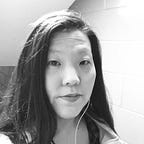My Diversity Statement
Hello from the intersection of the Munsee Lenape Lands and the Mohican Lands. I am an inhabitant of these sacred indigenous lands which are also known as New York City. I am not a native of this land, but of South Korea. I have been privileged to enter America thanks to the toil of my Black brothers and sisters and their allies and co-conspirators who fought in the Civil Rights Movement which led to the passage of the Immigration Act of 1965. I am indebted to their work for advocacy and desire for justice which precipitated the lifting of the ban on immigrants from East Asia. I am a proud recipient of a public school education in both Illinois and New Jersey and a grateful recipient of government funds that helped me attend the University of Pennsylvania where I studied French, Francophonie, and Urban Education. I was privileged to learn about the displaced Black Bottom community which occupied the land where the university now is. I was privileged to learn about the religious diversity of West Philadelphia and attend a Korean-American church in the heart of it which stayed even after they suffered a tragic loss of an elder during a botched carjacking in the church parking lot. I was blessed to learn firsthand about the deep inequities of the Philadelphia public school system through tutoring programs and summer enrichment programs where I confronted a room of reluctant Black teenagers, and we together heaved under the heavy burden of an unjust system, of years of systemic oppression, and of little to no support.
Shortly after the September 11th terrorist attacks of 2001, I left for a job in France as a teaching assistant in the suburbs of Paris, their equivalent of the American inner city. There I met 3rd and 4th generation African and Arab French children who had never been to the Eiffel Tower even though it was a short metro ride away. I observed how parallel inequalities existed, too, in this country, partially brought on by their own history of colonial imperialism. I saw how marginalized people stay marginalized when they see no hope of or reason for integrating into a dominant caste system. Their Arabic propelled me to visit Morocco, Tunisia, Jordan, and finally Egypt where I lived for two years to complete my Master’s degree as the recipient of a fellowship from the American University in Cairo. From there, I witnessed a unique vantage point of a self-imposed neocolonialism where the wealthy and elite Egyptian families were able to send their sons and daughters to university in expensive Maseratis which the students then paid black-footed shoeless street children to polish while they were in class. I saw a nation where after a while an imposed colonialism can become internalized and brother can oppress brother.
I returned to the States where I attempted to teach French in the suburbs of New Jersey, but I was forever changed. The long-term suburban dreams of a house, a deck, a white picket fence crashed erroneously into the memories of what I had experienced abroad. I met a boy from Iowa who ran similarly from his homogenous hometown in search of a wider world. I moved to New York City and became a teacher.
In all of my years of teaching, nothing broke me like working in New York City. I worked in Jamaica, Queens, which one can barely call the city anymore. When I took my students on a college tour in Manhattan, they asked me how they could return to this fabled land called “Manhattan.” When I told them that it was one literal train ride away, their minds were blown. Their immigrant existence on the outskirts of Queens, where streets are thrice named so that 181st Ave., St, and Blvd. doesn’t seem as far away from the “city,” was so markedly different in color, texture, and smell. Eventually, this became too far of a commute for me, so I moved to my current school, by then seasoned and hardened to know the tough realities my students faced. Here my Black and Brown students struggle daily. They struggle to be children in a world that treats them like adults. They pose. They posture. And they fail. Miserably. And once again, I’m a college student interning in West Philadelphia High School, crying from utter frustration when I tell the kids to set up an email account and they all go to hotmale.com which is very different from hotmail.com. But this time, I am surrounded by a cadre of Black, Brown, White, and Asian peers. And we are working to dismantle systemic biases. We are having uncomfortable conversations. We are confronting our Whiteness. Our Blackness. Our color blindness. And we are reading books about abolitionist teaching. And we are watching the news. And we are watching our students die. And we are committing ourselves to creating a world and a space where ALL are equal. And ALL are welcome. And I am learning every day to expand my mind to embrace the diversity of the world in which I live, to taste its food, to listen to its music, to read its books, to watch its movies. And I am learning to love every minute of it.
